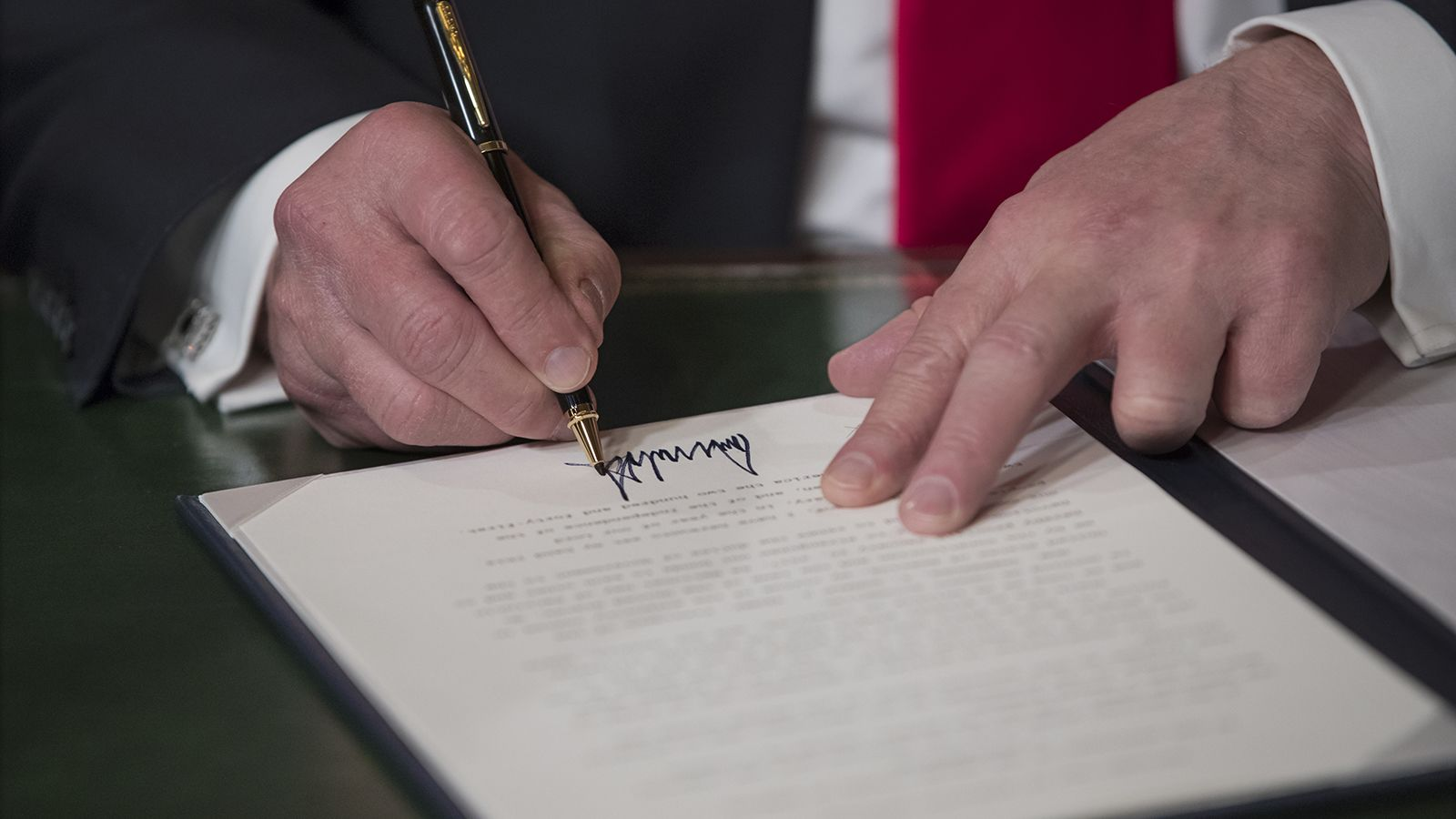In a move that has sparked widespread debate across the political spectrum, former President Donald Trump signed several executive orders on Thursday, including one that grants clemency to pro-life activists who were imprisoned during President Biden’s administration. This decision marks another chapter in Trump’s ongoing efforts to address what he and his supporters characterize as “politically motivated” prosecutions.
A Polarizing Decision
Trump’s latest clemency order has reignited fierce discussions among political leaders, civil rights advocates, and the general public. Supporters of the decision applaud it as a fulfillment of Trump’s campaign promises, highlighting his commitment to protecting individuals they believe were unfairly targeted due to their ideological beliefs. Conversely, critics argue that this move represents a troubling use of presidential power, potentially undermining the impartiality of the justice system.
Trump’s Justification: A Stand for Free Speech and Religious Liberties
During the signing ceremony, Trump emphasized his dedication to championing free speech and religious liberties—issues that were cornerstones of his presidency and subsequent campaigns. “These individuals were not criminals; they were patriots standing up for their deeply held beliefs,” Trump stated, framing the clemency as a moral imperative rather than a political maneuver.
This rationale resonates with many within the pro-life community, who view the activists as defenders of the unborn rather than violators of the law. Trump’s decision reinforces his alignment with conservative values, particularly those concerning life, liberty, and freedom of expression.
The Broader Implications for the Justice System
However, the move has raised alarms among legal scholars and civil rights groups. They argue that granting clemency based on political or ideological alignment risks eroding the foundational principle of equality before the law. “This sets a dangerous precedent where justice is not blind but influenced by political loyalties,” commented a spokesperson from the American Civil Liberties Union (ACLU).
Democratic leaders have also voiced strong opposition, accusing Trump of using his influence to politicize the justice system further. House Minority Leader Hakeem Jeffries criticized the clemency orders, stating, “Justice should be administered fairly, not based on political favoritism. This decision undermines the rule of law and the integrity of our legal institutions.”
Historical Context: Presidential Clemency and Its Controversies
While controversial, Trump’s clemency orders are not unprecedented. Presidential clemency has historically been a tool for addressing perceived injustices, with past presidents exercising this power for various reasons. For instance, President Gerald Ford famously pardoned Richard Nixon following the Watergate scandal, a move that remains contentious to this day.
Similarly, President Obama granted clemency to hundreds of non-violent drug offenders, citing the need for criminal justice reform. These actions, while differing in context, highlight the inherent power of clemency to influence legal and political landscapes significantly.
Reactions from the Pro-Life Community
The pro-life community has largely celebrated Trump’s decision. Prominent advocacy groups praised the clemency as a victory for religious freedom and human rights. “President Trump has once again shown his unwavering support for the sanctity of life and those who defend it,” said a spokesperson from the National Right to Life Committee.
Many pro-life activists believe that the legal actions taken against their members during the Biden administration were unjust and politically motivated. They argue that peaceful protests and advocacy should not result in imprisonment, viewing Trump’s clemency as a necessary correction to perceived governmental overreach.
Public Opinion: A Nation Divided
Public reaction to the clemency orders has been deeply divided, reflecting the broader polarization within American society. For Trump supporters, the decision is seen as a bold stand against political persecution. For his detractors, it represents an abuse of power designed to curry favor with a specific voter base.
Social media platforms have become battlegrounds for these differing viewpoints, with hashtags both supporting and condemning the clemency trending nationwide. The discourse highlights the complexities of balancing justice, political ideology, and presidential authority in a deeply divided nation.
Legal experts suggest that while the president’s clemency powers are broad, they are not without consequences. “The issue isn’t whether the clemency was legal—it’s about the message it sends,” said constitutional law professor Dr. Angela Martinez. “When clemency appears to be granted based on political affiliation rather than merit, it can undermine public confidence in the fairness of our legal system.”
Looking ahead, this decision may influence future administrations’ approaches to clemency and raise questions about the need for reforms to ensure that such powers are exercised transparently and justly.
Trump’s Continued Influence on American Politics
This latest move underscores Trump’s continued influence within the Republican Party and American politics at large. Even after leaving office, he remains a central figure in national discourse, with actions that resonate far beyond his presidency.
As Trump prepares for potential future political endeavors, decisions like these serve to galvanize his base, solidify his ideological stance, and maintain his relevance in the ever-evolving political landscape.
Trump’s clemency orders for pro-life activists have not only affected the lives of those directly involved but have also reignited critical discussions about justice, political influence, and the scope of presidential power. Whether viewed as an act of justice or a political maneuver, this decision will likely have lasting implications for how clemency is perceived and exercised in the United States.

